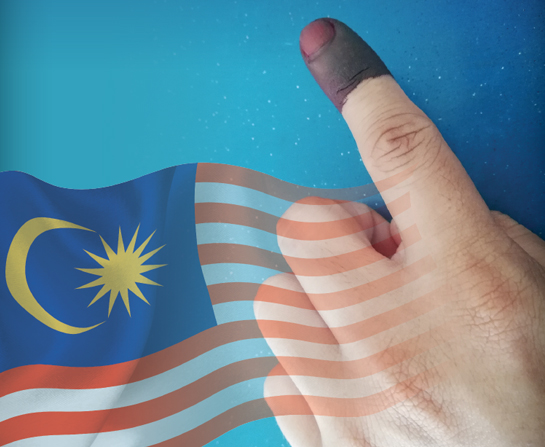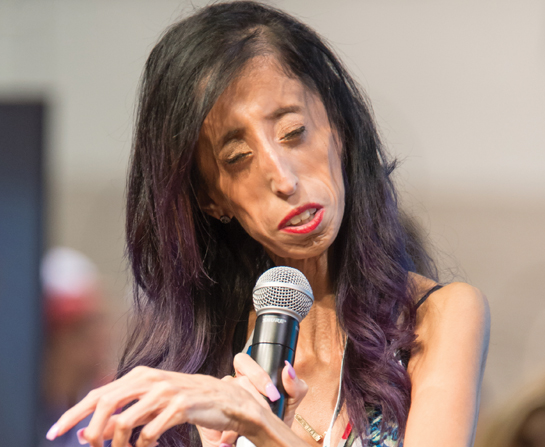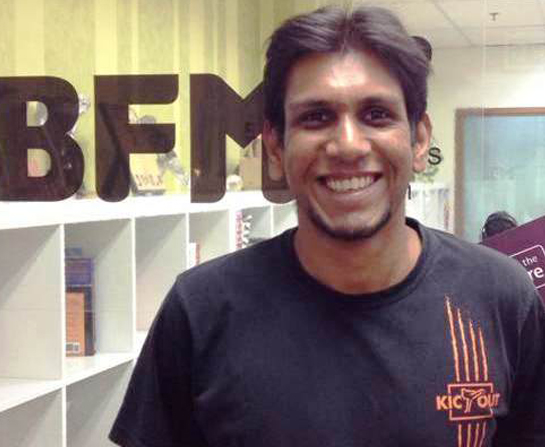Words Hannah May-Lee Wong
From child star to Disney teen to pop princess, Selena Gomez, 26, has risen to be one of the most recognizable faces in the entertainment industry. If that’s not enough, she is a childhood friend of Demi Lovato, best friends with mega-star Taylor Swift and was once the girlfriend of Justin Bieber (many moons ago). Name dropping aside, beneath the glitz and glamour portrayed on stage, Gomez remains down to earth, using her fame as a platform to speak about serious issues such as mental health and the obsession with perfection on social media. She uses her voice not only in song, but to speak about issues she struggles with, particularly her life-threatening autoimmune disorder and her journey through a kidney transplantation process.
UPCOMING CHILD STAR
Selena Marie Gomez was born in Texas on July 22, 1992 to parents Ricardo Joel Gomez and Amanda Dawn Cornett. When she was only 10 years of age, she appeared in Barney & Friends (between 2002 to 2004), singing, dancing and performing duets with the friendly purple dinosaur. That was also where she met and befriended fellow starlet, Demi Lovato.
A mere few years later, Gomez broke into the Disney scene, appearing regularly in the hugely successful and popular series Hannah Montana. It wasn’t until 2007 that she earned a starring Disney role, playing one of the lead characters in the series Wizards of Waverly Place. In the show, she was the beautiful and sassy teenage wizard Alex Russo, a character she played for four seasons (she even sang the theme song for the show).
Moving on from the successful TV series, Gomez blossomed into a star in her own right. She appeared in movies such as Monte Carlo (2011), animated film Hotel Transylvania (2012) and Hotel Transylvania 2 (2015). Beyond acting, she also garnered more popularity on the music charts with catchy tunes such as “Kill Em With Kindness”, “Come & Get It” and the ever-popular collaboration with Charlie Puth, “We Don’t Talk Anymore”.
UNFOLDING MENTAL HEALTH ISSUES
In the middle of 2016, Gomez made the difficult decision of cancelling part of her Revival tour, the tour that was to promote her second solo album. It was revealed that besides her health struggles, Gomez was dealing with mental health issues as well, struggling with her very public personal life and the high expectations of maintaining her image, especially online.
She spoke up for the first time when she won the award for Favourite Female Artist at the American Music Awards 2016. She said, “I think it’s safe to say most of you know a lot of my life, whether I like it or not, and I had to stop. Because I had everything and I was absolutely broken inside… I kept it all together, enough to never let you down, but I kept it too much together to where I let myself down.”
In an interview on Vogue, she talked about her depression, anxiety and low self-esteem. She said, “I started to have panic attacks right before getting onstage or right after leaving the stage… I felt I wasn’t giving my fans anything, and they could see it.” Gomez underwent therapy for three months where she undertook a social media cleanse while receiving dialectical behaviour therapy (DBT), a psychotherapy where patients learn to manage emotion and conflict.
STRUGGLE WITH LUPUS AND TRANSPLANT OPERATION
It was 2015 when Gomez first talked about lupus, telling Billboard magazine that she had been diagnosed with the disorder and had been through chemotherapy.
Lupus is an autoimmune disease which typically affects women of childbearing age (between 15 to 44). The immune system normally protects the body from pathogens, but in people with lupus, it starts to attack healthy functioning cells by mistake. Currently, there is no cure for lupus, though research on the disease continues. In Gomez’s case, it severely affected her kidneys.
In September 2017, Gomez posted on Instagram that she had undergone a kidney transplant procedure, receiving a kidney from her close friend Francia Raisa. In her post, she said, “So I found out I needed to get a kidney transplant due to my lupus… It was what I needed to do for my overall health… there aren’t words to describe how I can possibly thank my beautiful friend Francia Raisa. She gave me the ultimate gift and sacrifice by donating her kidney to me. I am incredibly blessed.”
Following up, she spoke out in an interview on NBC News. “I had arthritis, my kidneys were shutting down, my mentality was just to keep going,” she said tearfully. Her friend Francia Raisa also shared, “One day, she (Gomez) came home and she was emotional… I knew she hadn’t been feeling well. She couldn’t open a water bottle one day, she chucked it and started crying. I asked her what was wrong and that’s when she told me.” Gomez told Raisa that the waiting list for an organ was seven to 10 years long. That’s when her friend offered to get tested to find out if she was a suitable donor.
After physical and mental evaluations, Raisa had to prepare a will in case she didn’t wake up from surgery. Raisa recalled waking from surgery and feeling calm. Gomez, on the other hand, woke up suffering excruciating pain. She had to go for a second surgery because her new kidney was shifting abnormally in her body.
After recovering from surgery, Gomez was understandably emotional. “My arthritis went away, and there’s about a 3-5% chance that my lupus will ever come back. My blood pressure is better, my energy and my life has been better… I don’t think what we went through was easy, I don’t think that it was fun. I hope this inspires people to feel good, to know that there’s really good people in the world.”
KILLING ’EM WITH KINDNESS
Gomez has been a UNICEF ambassador since 2009. Amid her many collaborations with the non-profit organisation, she has travelled to Chile in support of helping Chilean families break free from poverty and violence within the home. She has also travelled to Ghana with UNICEF to visit children in need. In 2012, Gomez held a charity concert, raising US$200,000 which went to therapeutic foods, clean water, medicine, immunizations and education for underprivileged children worldwide.
THE ROAD AHEAD
Keeping busy, Gomez was an executive producer for the series Thirteen Reasons Why, a 2017 adaptation of the novel of the same name. It tackles taboo topics that affect teens all over the world including suicide, depression, sexual assault and bullying. The series aired on Netflix, becoming an instant and phenomenal success, so much so that a second season was released in 2018. Her newest and latest song release, “Back to You”, is featured as part of the soundtrack to Thirteen Reasons Why Season 2. On screen, she will reprise her voice acting role as Mavis in Hotel Transylvania 3: Summer Vacation, coming to theatres in July.
An expert’s take on organ transplant
|
What type of organ transplant did Selena Gomez undergo?
In Selena Gomez’s case, she received a kidney transplant from an unrelated living donor, which was her best friend. Organ donation is divided into two categories: living and cadaveric organ donation. Living organ donations are further divided into related and unrelated donors. In the Malaysian context, we have defined related donors as someone who has a first- or second-degree relation with the recipient or a legal spouse. First-degree relatives are parents, siblings or children, while second-degree relatives include grandparents/grandchildren, aunt/uncle or niece/nephew. Unrelated donors are donors who have no blood relations to the recipient. That said, distant relatives such as third or fourth cousins (though they are to some degree blood related) are distant enough to be classified as unrelated in terms of organ donation.
What are the assessments involved for organ transplantation?
For a live donation, a donor will be thoroughly assessed clinically by the attending physician, for example, a nephrologist. This involves a full laboratory test including compatibility test and imaging procedures. Psychosocial and psychiatric assessment will also be done to ensure the donor understands all information given to him or her to make an informed independent decision. Such details are very crucial to make sure all possible risks are identified and minimised.
Can this kind of transplantation be done in Malaysia?
In Malaysia, if you are an unrelated donor, you’ll have to apply for approval from the Ministry of Health. It’s an extra step of assessments. In general, we do not encourage living unrelated organ transplantation. However, if the attending physician believes that it may be fair to allow the case, it will be referred to the ministry for further assessment. It is decided on a case-by-case basis. Cases will be assessed by a team of independent donor advocates which consist of a physician, psychiatrist and medical social worker. A physician will check the donor’s understanding of the organ transplantation process – what it entails and the risks involved. If there are any gaps in knowledge, the doctor will re-emphasize and explain the important things a donor needs to know. A psychiatrist will need to check if the donor has made the decision truly out of his or her own free will. The decision to donate has to be voluntary and self-motivated. The medical social worker will evaluate both the donor and recipient’s socio-economic status to identify any inappropriate gap. The final report from the assessments will be further reviewed by a panel of doctors who will then evaluate cases from an ethical perspective.
In other countries that allow unrelated living donation, there are strict laws governing procedures on living organ transplants. In Malaysia, the laws on this matter have not been laid out yet. Currently, there aren’t any laws that prohibit organ trading – they are only governed by ethical guidelines. The scope of Human Tissues Act 1974 is restricted to deceased organ donation and not living donation. Since other countries have already established laws on this, physicians are more comfortable in carrying out unrelated living organ donations because they are covered by laws that prohibit donations in return for incentives. The Ministry of Health is in the process of drafting a new law on organ transplantation in Malaysia.
Who needs an organ transplant?
Usually, people who have end-stage organ failure. End-stage renal (kidney) failure can be caused by many diseases including diabetes (most common cause of kidney failure in Malaysia), hypertension and other less common diseases such as autoimmune disease or congenital diseases.
What are the risks involved?
There are risks, but they are minimal. There are possible risks of surgical complications (for example bleeding, infection, anaesthesia related complications) that may turn fatal, but it is very rare. Living donors for liver transplants have higher risks compared to kidney donors. Patients tend to recover and resume their normal activities in short periods of time.
Would the donor’s health be affected in any way post-donation?
Thus far, there is no evidence that those who donate a kidney are affected negatively. Before donation, donors are usually screened under very stringent health requirements. If donors have chronic diseases such as diabetes or cancer, they won’t be eligible for living organ donations.







